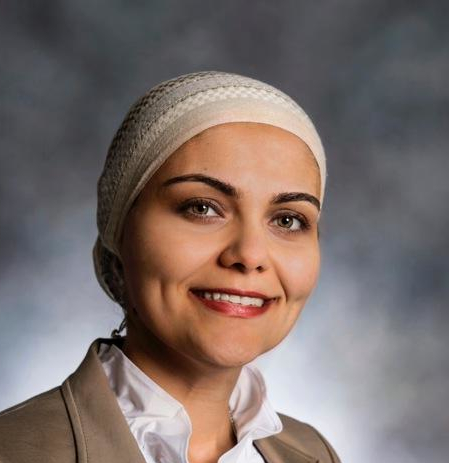New Faculty Focus: Marwa Shalaby
Marwa Shalaby, Assistant Professor, Gender & Women’s Studies
Hometown: Cairo, Egypt.
Educational/professional background: My undergraduate degree was from Al-Azhar University, Egypt. I then moved to the U.S. to pursue my graduate studies at the University of Houston. After completing my Ph.D., I joined Rice University as a post-doctoral fellow in Middle East Studies and then became an Endowed Fellow and Director of the Women’s Rights in the Middle East Program. I am also an affiliated scholar with the Program on Governance and Local Development (GLD) at the University of Gothenburg, Sweden.
How did you get into your field of research? Growing up in the Middle East, I witnessed firsthand patterns of power imbalance which were difficult for me to explain then. I was particularly keen to understand the challenges women face to access political leadership positions. While my dissertation explicated gender-related variations in political behavior and attitudes across the MENA region (Middle East, North Africa, Afghanistan, and Pakistan), my postdoctoral project focused primarily on women and politics. My current work aims to investigate how female politicians come to power and the myriad ways they represent their communities and/or constituents under autocratic political structures.
What attracted you to UW–Madison? UW-Madison is a prominent research institution with unmatched domestic and international reputation. I am especially thrilled to be part of the Arab Politics and Society cluster hire. Once I heard about UW–Madison’s new initiative, I just knew that this is the right place for me and my scholarship. It is such a great opportunity to work with UW–Madison renowned faculty and the new cohort of fantastic MENA scholars.
What was your first visit to campus like? It was so cold. I was freezing but the warm welcome that I received from the GWS faculty and chair, and everyone I encountered in Madison immediately warmed my heart and made me feel home.
What’s one thing you hope students who take a class with you will come away with? To gain a better understanding on the roots of gender inequalities in the Middle East. I want them to be able to see that MENA is not a homogenous region and that the challenges facing women are very diverse and multi-faceted.
Do you feel your work relates in any way to the Wisconsin Idea? Throughout my career I have been keen to bring attention – by means of my research – to the obstacles facing women in the MENA region and possible solutions to rectify such inequalities. Hence, I have consulted with domestic government agencies on several research projects related to women and politics in MENA. Furthermore, I contributed to several media and news outlets to disseminate my research to the public. I was interviewed by major domestic and international media outlets about my research, such as CNN, Fortune Magazine, Al-Ahram (Egypt), and World Politics Review.
What’s something interesting about your area of expertise you can share that will make us sound smarter at parties? There is so much going on in the Middle East and North Africa. You never run out of interesting topics to talk about in parties and other large gatherings. Particularly, there are so many misconceptions relating to gender issues in the MENA region. Students and friends always ask me, “Why are women so oppressed in the Middle East?” This is the best conversation starter, it never fails.
Hobbies/other interests: Cooking, Cycling and Travel.

